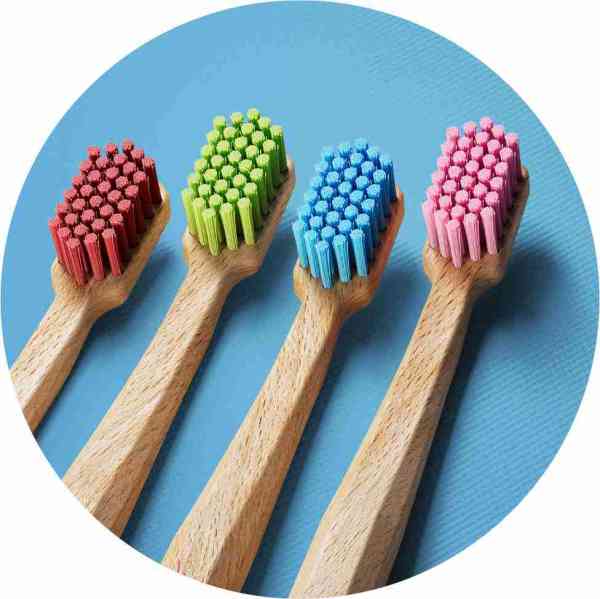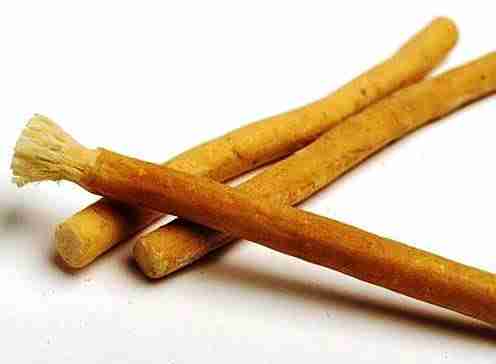What is a Natural Toothbrush?
Understanding Natural Toothbrush
A natural toothbrush is a sustainable, eco-friendly alternative to conventional plastic toothbrushes. With increasing environmental concerns, many people are turning to natural options to reduce plastic waste and exposure to chemicals. This article explores what makes a toothbrush “natural,” the various types available, and an in-depth look at the different kinds of bristles used in natural toothbrushes.
Types of Natural Toothbrushes
Natural toothbrushes are available in several forms, using a variety of materials for both the handle and bristles. The following are some of the most common types:
Bamboo Toothbrushes
Bamboo toothbrushes are among the most popular choices due to bamboo’s renewable nature. Bamboo grows rapidly and requires no fertilizers, making it highly sustainable.
- Bristles: Typically, bamboo toothbrushes come with either nylon bristles or plant-based bristles. Many brands use Nylon-4, which is biodegradable under certain conditions, while others offer fully plant-based options.
- Pros: Bamboo handles are biodegradable and compostable.
- Cons: Bristles may still contain some plastic if nylon is used, requiring careful disposal.
Wooden Toothbrushes

Wooden toothbrushes are another natural option, often made from sustainably sourced wood like beechwood or oak. The durable wood handle offers a comfortable grip while being biodegradable.
- Bristles: Like bamboo toothbrushes, wooden toothbrushes may have bristles made from nylon, plant-based materials, or boar hair (a natural option for bristles).
- Pros: Sturdy and eco-friendly handle.
- Cons: Limited availability compared to bamboo toothbrushes.
Miswak (Chewing Sticks)

Miswak sticks are an ancient form of natural toothbrush, made from the Salvadora persica tree. It doesn’t require bristles, as the stick’s fibers serve as a cleaning agent when chewed.
- Bristles: The miswak naturally forms its own bristles by chewing on the end of the stick.
- Pros: 100% biodegradable and requires no added toothpaste.
- Cons: May take time to get used to and isn’t a replacement for the scrubbing power of traditional bristles.
Plant-Based Toothbrushes
Some natural toothbrushes use plant-based materials for both the handle and bristles. These are often made from oils such as castor oil or other renewable resources.
- Bristles: These bristles are fully biodegradable, offering a more environmentally friendly option than synthetic bristles.
- Pros: Fully biodegradable and non-toxic.
- Cons: Can be more expensive and harder to find than nylon bristle alternatives.
Types of Bristles in Natural Toothbrushes
The bristles of a toothbrush are key to its effectiveness and eco-friendliness. Natural toothbrushes offer a variety of bristle options, each with its pros and cons.
Nylon Bristles (Nylon-4)
Many natural toothbrushes, especially bamboo and wooden ones, use Nylon-4 bristles. Unlike traditional nylon (such as Nylon-6), Nylon-4 is a biodegradable form of plastic that breaks down faster under the right conditions.
- Biodegradability: Nylon-4 is more eco-friendly than standard nylon, as it can degrade in landfills or industrial composting systems within a few months to a few years.
- Performance: Nylon bristles offer good durability, softness, and flexibility, making them effective for cleaning teeth without damaging gums.
- Pros: Soft and durable, widely available, more eco-friendly than conventional nylon.
- Cons: Although it’s biodegradable, it still requires specific conditions to fully break down, meaning it may not decompose in a home compost pile.
Plant-Based Bristles
An alternative to nylon bristles is plant-based bristles, often made from castor oil or other plant-derived materials. These bristles are fully biodegradable and free from petroleum-based plastics.
- Biodegradability: These bristles can be composted along with the toothbrush handle, making them a fully sustainable option.
- Performance: Plant-based bristles are typically softer than nylon, which can be gentle on sensitive gums. However, they may wear out faster than nylon.
- Pros: 100% biodegradable, natural, and non-toxic.
- Cons: Plant-based bristles may not last as long as nylon and can be more expensive.
Boar Hair Bristles
For those looking for an entirely natural option, boar hair bristles are another choice. These bristles come from the hair of wild boars and have been used for centuries in toothbrushes.
- Biodegradability: Being animal hair, boar bristles are fully biodegradable.
- Performance: Boar hair is slightly stiffer than nylon or plant-based bristles, which can be beneficial for those needing a firmer clean. However, it may not be as uniform or soft as synthetic options.
- Pros: 100% natural and biodegradable.
- Cons: Not vegan-friendly, can have a rougher texture, and may absorb moisture, leading to bacteria growth if not properly dried.
Miswak Bristles
As mentioned earlier, the miswak stick forms its own bristles when chewed. The fibers released from the stick help clean teeth naturally.
- Biodegradability: The entire miswak stick is biodegradable, making it one of the most eco-friendly toothbrush options available.
- Performance: Miswak bristles are softer and less abrasive than synthetic bristles but still effective due to the stick’s natural antibacterial properties.
- Pros: 100% natural, requires no toothpaste, and is biodegradable.
- Cons: It may take time to master how to use the stick effectively, and it may not give the same level of cleaning as bristle-based toothbrushes.
How to Choose the Right Natural Toothbrush
Choosing the right natural toothbrush depends on personal preference, including bristle material and handle type. Here are some tips:
- For sensitive gums: Choose a toothbrush with soft plant-based or nylon bristles. These bristles are gentle on the gums while still effective at cleaning.
- For firmer cleaning: Boar hair bristles or firmer nylon bristles might be better suited if you prefer a more rigid brush for plaque removal.
- For a fully biodegradable option: Look for plant-based bristles and bamboo or wooden handles to ensure your toothbrush can be composted.
- For natural simplicity: If you want a simple, all-natural tool, try a miswak stick.
Also, remember to dispose of your toothbrush correctly. While bamboo and wood handles can be composted, nylon bristles should be removed and disposed of separately unless they are plant-based.
Conclusion
A natural toothbrush offers many advantages over conventional plastic brushes, from being eco-friendly to free from harmful chemicals. Whether you opt for bamboo, wood, or miswak, and choose bristles made from nylon, plant-based materials, or boar hair, you are making a choice that benefits both your health and the planet. Consider your needs—whether you want a soft, sustainable brush or a more traditional feel with firmer bristles—and make the switch to a natural toothbrush today.
